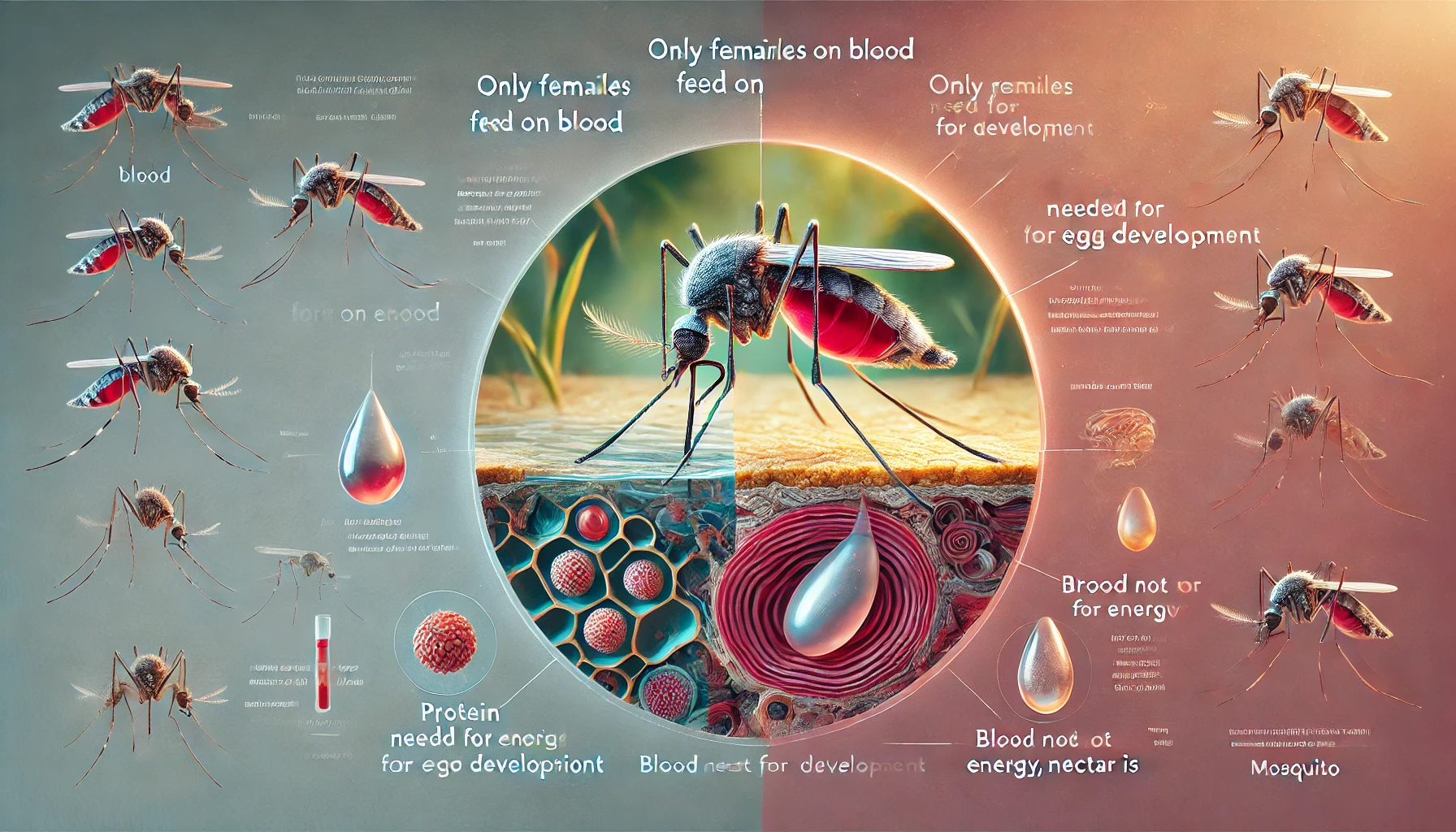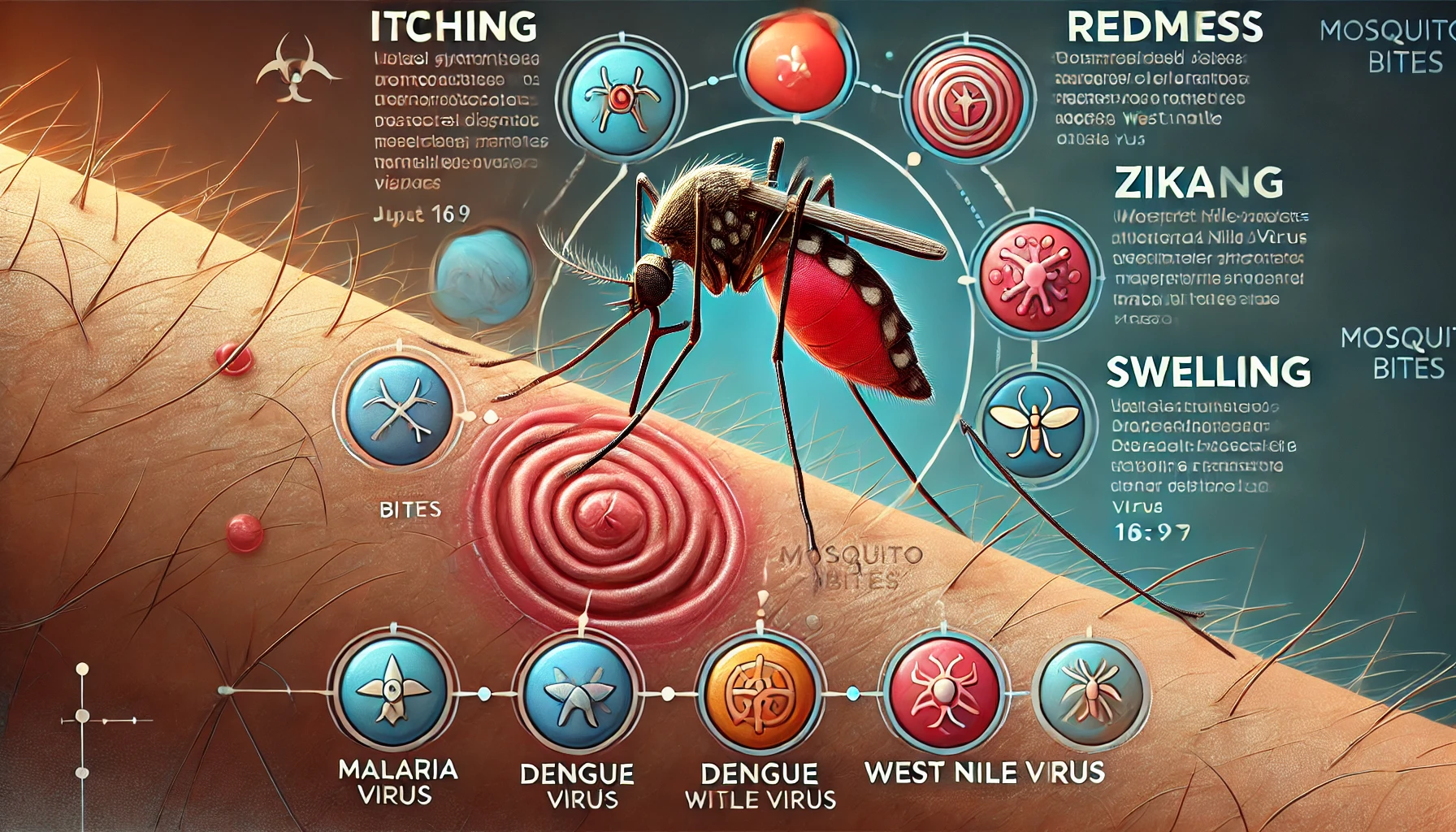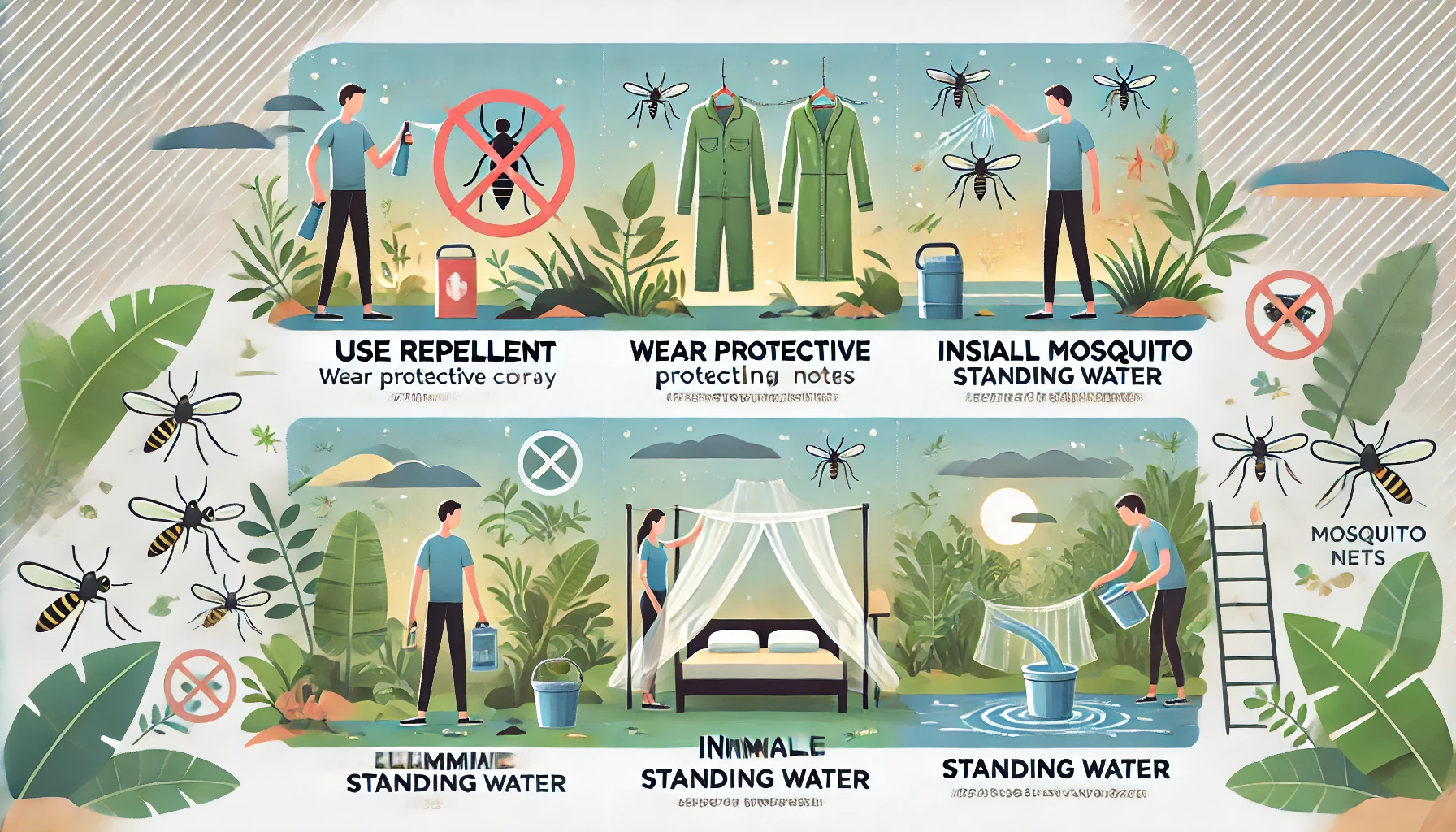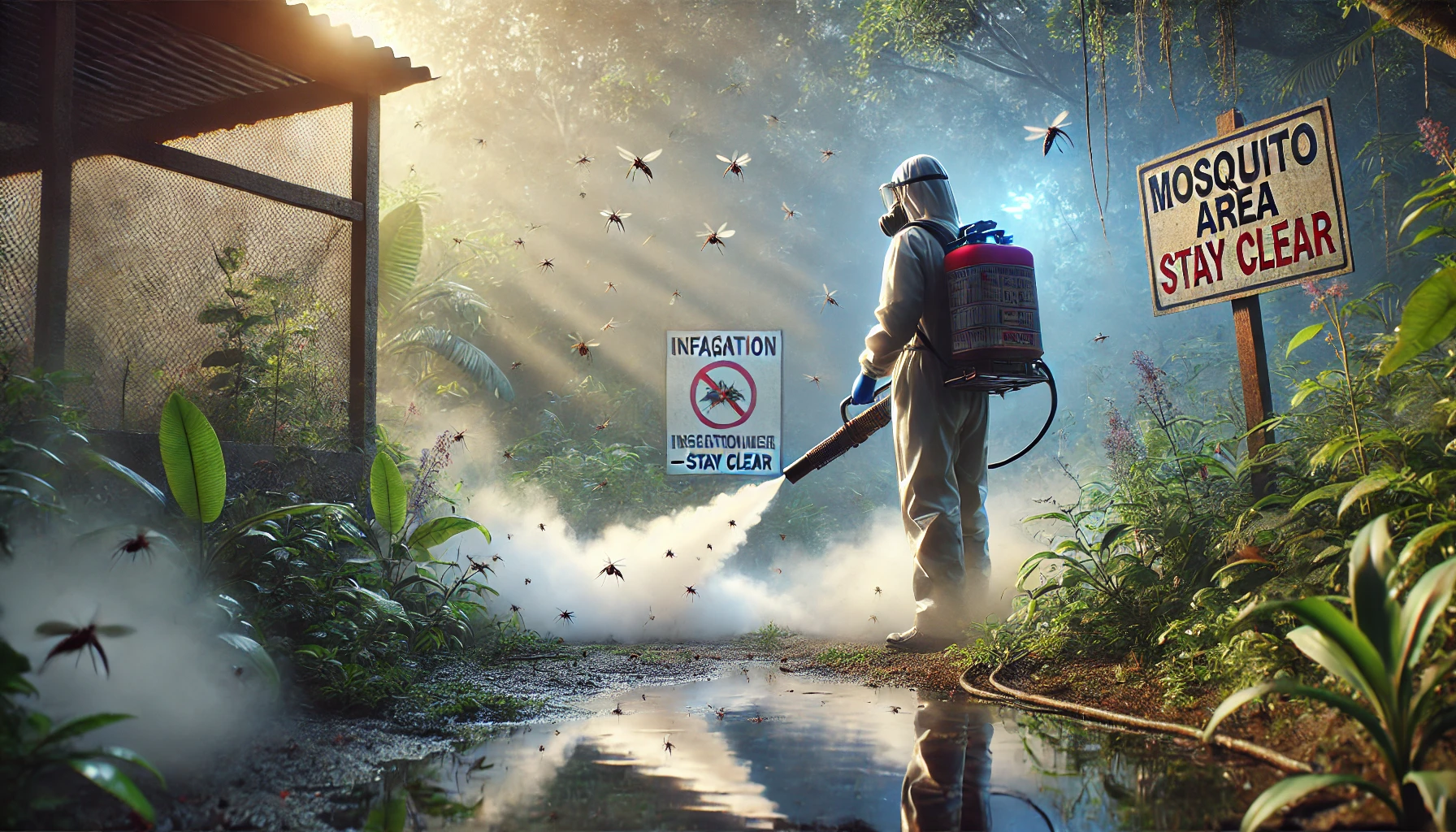Key Takeaways
- Only female mosquitoes bite because they need blood to reproduce.
- Mosquitoes find you through your breath, body heat, sweat, blood type, and clothing.
- Mosquito saliva causes allergic reactions, leading to itchy bites.
- Mosquito bites can transmit serious diseases like West Nile and Zika.
- Effective mosquito prevention includes eliminating standing water, using repellents, and seeking professional help when needed.
 Picture on an ideal summer evening: You are lounging in your backyard, burger burgers on the grill, children are playing, and life looks great – suddenly, until you are slapping on your hand. Bite another mosquito! But have you ever surprised why mosquitoes are so eager to suck your blood in the first place? It is not because they are mini vampires – well, not at all. Do you know what? The real reason can surprise you.
Let’s break it down in a way that makes sense and helps you stay bite-free this mosquito season.
Picture on an ideal summer evening: You are lounging in your backyard, burger burgers on the grill, children are playing, and life looks great – suddenly, until you are slapping on your hand. Bite another mosquito! But have you ever surprised why mosquitoes are so eager to suck your blood in the first place? It is not because they are mini vampires – well, not at all. Do you know what? The real reason can surprise you.
Let’s break it down in a way that makes sense and helps you stay bite-free this mosquito season.
First, the Big Surprise: Only Female Mosquitoes Bite!
Believe it or not, a female mosquito delivered every bite you’ve endured. That’s right—the males? Harmless. They just sip on nectar from flowers and plants. But female mosquitoes are another story altogether. They need blood, and it’s not because they’re hungry or craving your blood type for dinner. Nope. Female mosquitoes bite because they require the proteins and iron found in blood to produce their eggs. Without blood, they simply can’t reproduce. A blood food allows a female mosquito to lay hundreds of eggs simultaneously. Imagine how soon the population of those mosquitoes can multiply! And you thought a mosquito was annoying? There is another twist: Researchers found that mosquitoes get additional frustration during dried mantra, cutting people just to be hydrated. Imagine being their emergency water bottle! No comfort at all, isn’t it?

Not getting a solution?
Get your free pest control estimate today!But How Do Mosquitoes Even Find You? (Spoiler: It's Easy for Them!)
- Ever wondered why mosquitoes seem to always choose you over your friends at the barbecue? You know what? You’re not crazy. Mosquitoes have an impressive toolkit designed precisely to find their next victim.
-
Carbon Dioxide: Every exhale releases carbon dioxide, which mosquitoes can detect from over 100 feet away—basically a dinner bell for them.
-
Body Heat: Thermal sensors help mosquitoes zero in on the warmth from your skin, especially around dusk and dawn.
-
Sweat and Skin Scents: Chemicals like lactic acid and ammonia in your sweat make you more enticing, particularly when you’re active.
-
Blood Type Preference: People with Type O blood are more likely to be targeted, based on mosquito preference studies.
-
Movement and Clothing Color: Mosquitoes are drawn to motion and dark clothing, making active individuals easier to spot and bite.
Here’s how mosquitoes track you down:

So, What’s Happening When Mosquitoes Bite?
When mosquitoes choose you as your buffet, they use a sharp, straw-like mouthpart, which is called a trunk to gently and quickly pierce your skin-often even without you. Clever, right? But here it is that it becomes annoying: mosquitoes inject the saliva containing anticoagulant to flow your blood smoothly. This saliva triggers your immune response, causing it to a banged, itchy collision. Yes, your body’s defense system converts a simple mosquito snack into an itching disaster.Why Mosquito Bites Are More Than Just an Itchy Nuisance
- Here’s the thing: mosquito bites aren’t just itchy inconveniences. They can pose serious health risks. Mosquitoes can carry and transmit some pretty nasty diseases. Here’s a quick snapshot of a few you should be aware of:
-
West Nile Virus: The most common mosquito-borne disease in the U.S., causing fever, headaches, and occasionally serious neurological effects.
-
Zika Virus: Known for causing severe birth defects when contracted during pregnancy—important to avoid during travel or outbreaks.
-
Eastern Equine Encephalitis (EEE): A rare but severe virus that affects the nervous system and can be fatal in extreme cases.
-
Dengue Fever: Mostly found in warmer regions, this flu-like illness includes joint pain, rash, and high fever.

Practical Steps to Protect Yourself (Without Turning Your Life Upside Down)
- Okay, so mosquitoes are more than just a tiny annoyance; you don’t have to surrender your backyard to them. Here are some practical, homeowner-friendly tips to take back your outdoor spaces:
-
Get Rid of Standing Water: Empty birdbaths, buckets, pet bowls, and gutters regularly to eliminate mosquito breeding sites.
-
Keep Screens Intact: Check window and door screens for holes and patch them to prevent mosquitoes from entering your home.
-
Use Mosquito Repellents: Apply EPA-approved repellents like DEET or picaridin—or try natural alternatives like lemon eucalyptus oil.
-
Outdoor Fans to the Rescue: Use fans on your patio to deter mosquitoes—they’re weak fliers and will stay away from breezy areas.
-
Consider Professional Help: For severe infestations, call in pest control experts to significantly reduce mosquito populations around your home.
 Bottom line? While mosquitoes are annoyingly good at what they do, you have plenty of practical tools to fight back. Now that you know precisely why mosquitoes bite (and how they do it), you’re better equipped to protect your family and home from becoming their next favorite dining spot.
Bottom line? While mosquitoes are annoyingly good at what they do, you have plenty of practical tools to fight back. Now that you know precisely why mosquitoes bite (and how they do it), you’re better equipped to protect your family and home from becoming their next favorite dining spot.
If you feel things have gone out of control, it is advised to contact pest control professionals. Our team can provide a customized approach to protect your home effectively.
Visit our Species, Control, and DIY Guide sections for additional resources on mosquitoes and ways to tackle a mosquitoes infestation.





